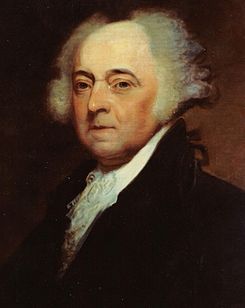This is your morning Open Thread. Pour your favorite beverage and review the past and comment on the future.
Find the past “On This Day in History” here.
Click on image to enlarge
May 30 is the 150th day of the year (151st in leap years) in the Gregorian calendar. There are 215 days remaining until the end of the year.
On this day in 1922, Former President William Howard Taft dedicates the Lincoln Memorial on the Washington Mall on this day in 1922. At the time, Taft was serving as chief justice of the U.S. Supreme Court.
Taft remains the only former president ever to hold a seat on the Supreme Court. He served from 1921 to 1930. He recalled his time on the court as his most rewarding career, later saying in his memoirs, I don’t remember that I was ever president.
The Lincoln Memorial, designed after the temples of ancient Greece, is significant as America’s foremost memorial to their 16th president, as a totally original example of neoclassical architecture, and as the formal terminus to the extended National Mall in accordance with the McMillan Plan for the monumental core of Washington.
Demands for a fitting memorial had been voiced since the time of Lincoln’s death. In 1867, Congress heeded these demands and passed the first of many bills incorporating a commission to erect a monument for the sixteenth president. An American, Clark Mills, was chosen to design the monument. His plans reflected the bombastic nationalistic spirit of the age. His design called for a 70-foot (21 m) structure adorned with six equestrian and 31 pedestrian statues of colossal proportions, crowned by a 12-foot (3.7 m) statue of Abraham Lincoln. However, subscriptions for the project were insufficient and its future fell into doubt.
The matter lay dormant until the turn of the century, when, under the leadership of Senator Shelby M. Cullom of Illinois, six separate bills were introduced to Congress for the incorporation of a new memorial commission. The first five bills, proposed in the years 1901, 1902, and 1908, met with defeat; however, the final bill (Senate Bill 9449), introduced on December 13, 1910, passed. The Lincoln Memorial Commission had its first meeting the following year and President William H. Taft was chosen as president. Progress continued at a steady pace and by 1913 Congress had approved of the Commission’s choice of design and location. However, this approval was far from unanimous. Many thought that architect Henry Bacon’s Greek temple design was far too ostentatious for a man of Lincoln’s humble character. Instead they proposed a simple log cabin shrine. The site too did not go unopposed. The recently reclaimed land in West Potomac Park was seen by many to be either too swampy or too inaccessible. Other sites, such as Union Station, were put forth. The Commission stood firm in its recommendation though, feeling that the Potomac Park location, situated on the Washington Monument–Capitol axis, overlooking the Potomac River and surrounded by open land, was an ideal site. Furthermore, the Potomac Park site had already been designated in the McMillan Plan of 1901 to be the location of a future monument comparable to that of the Washington Monument.
With Congressional approval and a $300,000 allocation, the project got underway. On February 12, 1914, an inauspicious dedication ceremony was conducted and following month the actual construction began. Work progressed steadily according to schedule. However a few changes did have to be made. The statue of Lincoln, originally designed to be 10 feet (3.0 m) tall, was later enlarged to 19 feet (5.8 m) to prevent it from being dwarfed by its huge chamber. As late as 1920, the decision was made to substitute an open portal for the bronze and glass grille which was to have guarded the entrance. Despite these changes, the Memorial was finished on schedule. In a (May 30) celebration in 1922, Commission president William H. Taft dedicated the Memorial and presented it to President Warren G. Harding, who accepted it for the American people. Lincoln’s only remaining son, 79 year old Robert Todd Lincoln, was in attendance.



 On this day in 1961,
On this day in 1961,  Born in London as Peter James Henry Solomon to a Jewish family, the only son of Harold Solomon and
Born in London as Peter James Henry Solomon to a Jewish family, the only son of Harold Solomon and  On this day in 1813,
On this day in 1813,  When Jefferson retired from the presidency in 1809, Dr. Benjamin Rush, a signer of the Declaration that Adams and Jefferson worked to create, took it upon himself to renew their suspended friendship. He had no success until 1811, when one of Jefferson’s neighbors visited Adams in Massachusetts. The neighbor returned to Virginia with the report that he had heard Adams say, “I always loved Jefferson, and still love him.” In response to these words, Jefferson wrote Dr. Rush: “This is enough for me. I only needed this knowledge to revive towards him all of the affections of the most cordial moments of our lives.” He asked Rush to persuade Adams to renew their correspondence. A letter from Adams was forthcoming, and they continued to write until their deaths.
When Jefferson retired from the presidency in 1809, Dr. Benjamin Rush, a signer of the Declaration that Adams and Jefferson worked to create, took it upon himself to renew their suspended friendship. He had no success until 1811, when one of Jefferson’s neighbors visited Adams in Massachusetts. The neighbor returned to Virginia with the report that he had heard Adams say, “I always loved Jefferson, and still love him.” In response to these words, Jefferson wrote Dr. Rush: “This is enough for me. I only needed this knowledge to revive towards him all of the affections of the most cordial moments of our lives.” He asked Rush to persuade Adams to renew their correspondence. A letter from Adams was forthcoming, and they continued to write until their deaths. Welcome to the Stars Hollow Health and Fitness News weekly diary. It will publish on Saturday afternoon and be open for discussion about health related issues including diet, exercise, health and health care issues, as well as, tips on what you can do when there is a medical emergency. Also an opportunity to share and exchange your favorite healthy recipes.
Welcome to the Stars Hollow Health and Fitness News weekly diary. It will publish on Saturday afternoon and be open for discussion about health related issues including diet, exercise, health and health care issues, as well as, tips on what you can do when there is a medical emergency. Also an opportunity to share and exchange your favorite healthy recipes. 
Recent Comments